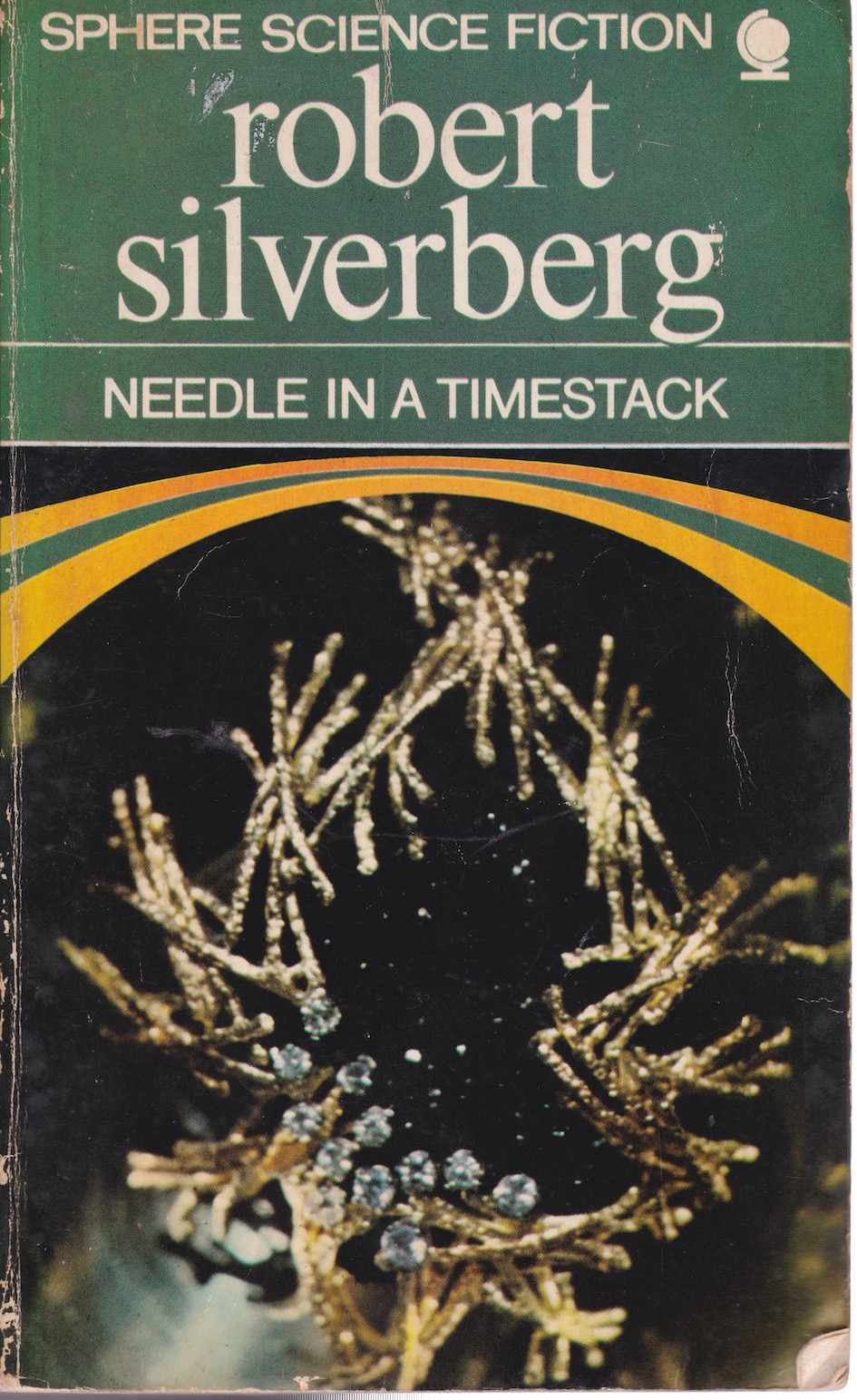This title is a collection of science fiction short stories by one of the well-known names in the genre at its peak. In 1966, fifty years ago, a gallon of regular gasoline in the USA was 0.31 cents. Cars had tail fins. Japan was where the junk came from. Vietnam was seldom in the news. The Cold War was very cold. China was …. nearly invisible. Hollywood ruled the silver screen. Air travel was the preserve of the very rich.

Robert Silverberg’s (1935 -) stories feature automatic doors, mobile phones, automatic autos (self-driving cars), surgery that does not cut the skin, video watches, as well as the a menageries of aliens. But mostly the stories are how people think, act, and react. The gadgets are there as props and furniture, as are the aliens.
Best of all, given that in 1966 ‘I Love Lucy’ was the top-rated television show, was his anticipation of reality television with its fetish for the pain and humiliation of others. Equally amusing was the tyrannical robot diet enforcer in ‘The Iron Chancellor.’ Yes, the allusion is to Otto von Bismarck who is here combined with a diabolical Jenny Craig.
The most thought-provoking was ‘The Invisible Man,’ a rift, of course, on the H. G. Wells story but with some social and psychological insight which Wells never had.
The stories are all about 15-20 printed pages. Irony features heavily in them. Think if Rod Serling’s ‘The Twilight Zone.’
A character, usually the narrative voice, is confounded at his own game. The con man is conned. The exploitive television producer is exploited. The lord is abased before a serf. The expert on alien life forms is disgusted to meet one. The firm bureaucrat is dealt with firmly by another. There are quite a few role-reversals.
Most of us like to see the mighty eat some crow. The more so when the mighty are unworthy.
As adventuresome and imaginative as these stories are, a contemporary reader they swim in the manners and morēs of 1966. There is nothing about racism. Not even the stories involving alien beings seem to reflect on race relations.
Alike absent are women. Occasionally there is a secretary in an outer office, or budding young girls who long to be married, or a frazzled housewife, but none is an agent, an actor, These are men’s worlds. The linguist has a wife but her role is to pack his bag when he goes to meet the aliens. The doppelgänger meets several young women whose only aspiration is marriage. The dieting husband has a wife who also needs to diet, but she is but a chorus to his tenor.
Sometimes the balance of the stories fails. There is a considerable lead up to wispy, poof denouement.
The prose is fluent and confident. I re-read a couple of Philip K. Dick novels a few years ago and remember finding it hard going. Not so with these pages.
Most collections of short stories take the title from one of the stories, usually the longest or the one placed first. That is not the case here. The title stands apart.
 Robert Silverberg
Robert Silverberg
This copy emerged from a box in our recent move. Kathlyn McNeil bought it for 0.80 cents Australian in 1966. In those days the back cover had prices of Australia, New Zealand, United Kingdom, South Africa, and East Africa. Its pages have yellowed but the paperback spine remains bound.
Skip to content
